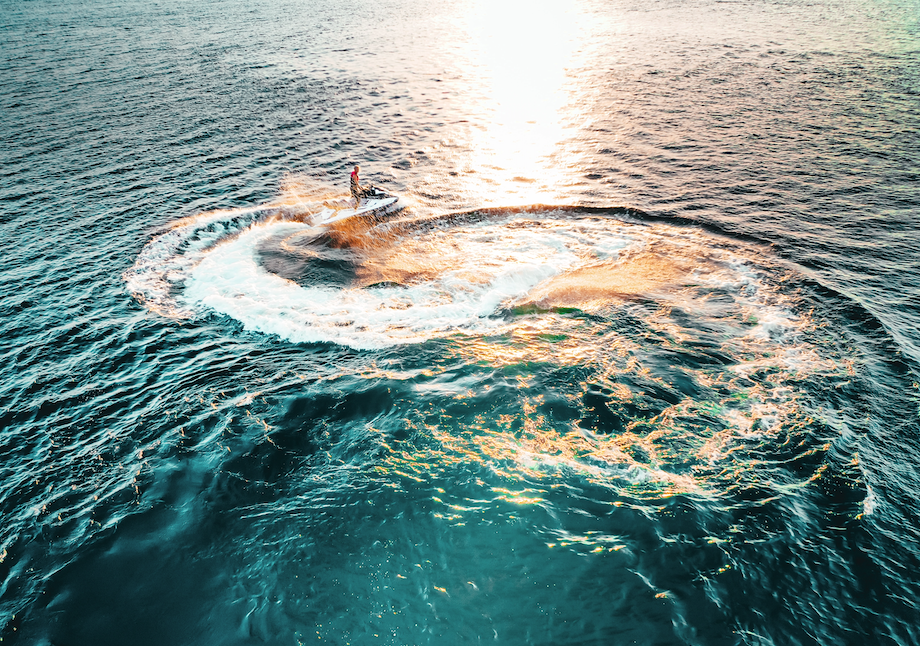Whether you own an outboard bass boat or an inboard motor yacht, it’s important to keep your pride and joy protected with a good boat insurance policy. There could come a day where that coverage saves you from an expensive loss.
» MORE: Insurance for Bass Outboard Boats
Do I need boat insurance?
If you own and operate watercraft with an engine, yes you should have a boat insurance policy.
Sometimes, boat owners look to their home insurance policy to cover their boat as well. But a homeowners policy does not extend any coverage to most boats. It may provide coverage for small boats that are not powered like a canoe or kayak. However, almost all boats with engines require a boat insurance policy for protection both on land and water.
If you own a boat or watercraft like a center console, pontoon, jet ski, sailboat, yacht, and others- then you will need boat insurance.
What does boat insurance cover?
At a minimum, you can buy liability-only insurance. This will protect you against bodily injury and property damage to others that you are liable for, subject to policy limits.
Other common types of boat insurance coverage include:
-
Damage from fire, theft, or collision
-
Damage to personal property included in the policy (example: fishing and water ski equipment)
-
Medical payments coverage pays for the medical bills incurred sustained by your guests regardless of liability
-
Towing and roadside assistance if you break down on water or land.
» MORE: What Does Boat Insurance Cover?
What isn’t covered by a boat insurance policy?
No insurance policy covers everything. You should consult your policy to confirm exactly what is and is not covered, but most policies do not cover:
-
Wear and tear
-
Mechanical breakdown
-
Damage from mold, corrosion, and animals
What are the payout options in the case of a total covered loss?
If your boat sustains a covered total loss, your insurance policy will likely provide coverage on one of two bases - actual cash value or agreed value.
-
Actual cash value coverage will consider the value of your boat at the time of loss less any applicable depreciation.
-
Agreed value policies pay the stated value set forth in your policy without adjusting for depreciation.
» MORE: Boat Insurance Actual Cash Value Versus Agreed Value
Other things to know about your policy and coverage options
-
Layups: if you live in an area with cold winters, you may consider taking your boat out of the water during those months. Even though your boat will be out of use and stored, SkiSafe will continue to provide for the boat when it is out of use while giving you an additional discount for not using the boat.
-
Navigational Limits: some policies may include limits as to where you can navigate the vessel in exchange for a lower annual premium.
-
Marine Surveys and Inspections: if you own an older boat, you will likely need to get the vessel inspected by a certified or accredited NAMS or SAMS marine surveyor. An insurance company will typically require a comprehensive pre-purchase condition and valuation survey.
Boat insurance cost and discounts
The cost of boat insurance will depend on the amount of coverage you want, as well as the specifics of your watercraft - its type, size, age, market value, horsepower, and more.
» MORE: How to Save on Insurance Premiums
You’ll be able to choose a deductible, which is the amount of each loss you self-insure. After a covered claim, this amount will be deducted before the policy kicks in. In other words, a deductible is the amount you are responsible for paying after a covered claim.
For example, if your jet ski experiences $2,000 worth of damage in a covered claim and you have a $500 deductible, the policy will pay $1,500 for damage to the insured property.
The overall dollar amount paid for boat insurance coverage will vary from boater to boater based on the coverage requested and unique risk of each applicant. But, there are a variety of ways to save money on your boat insurance coverage:
-
Loss-free boating record
-
Complete a boat safety course
-
Operate the watercraft in a limited territory
-
Laying up the boat for at least 4 consecutive months of non-use
-
Clean driving record
-
Prior boat ownership experience
-
Bundling multiple vessels

